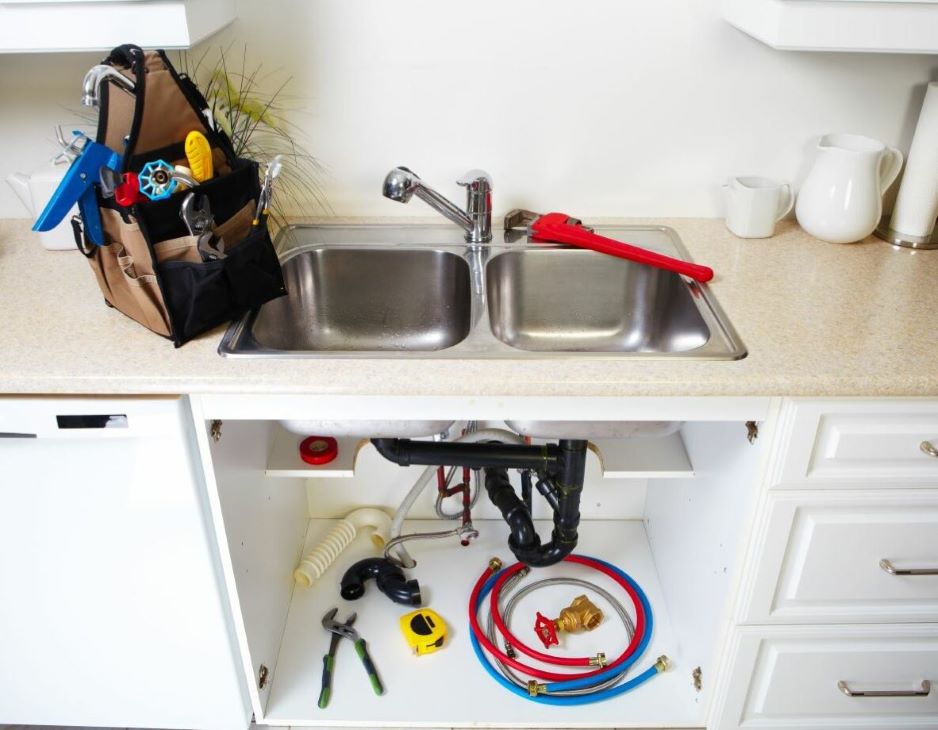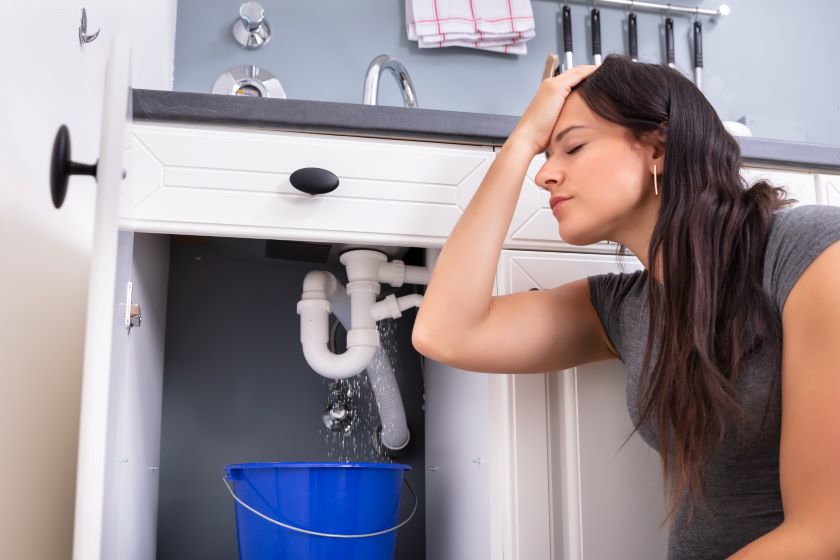Drain Cleaning Service in Cottonwood
Mountain High Plumbing has had the privilege of proudly serving our Cottonwood neighbors since 1994. Our family-owned plumbing company traces its origins back to Jim Velez, Sr. and his wife, Alana, who established the company almost 30 years ago, and later welcomed their son, Jimmy, into the fold. The distinctive skills of Jim Sr. and Jimmy combine to ensure that each and every customer receives top-notch service when they choose our local, family-owned business. At Mountain High Plumbing, prioritizing customer satisfaction is our unwavering commitment.Our long-standing Cottonwood plumbing company has earned its reputation for excellence through an unwavering commitment to our core values. We stand out with our distinctive approach, combining decades of experience with exceptional workmanship and competitive pricing. Our bonded, insured, and licensed plumbers are as dependable and trustworthy as can be. They are seasoned and dedicated professionals, which is evident in every plumbing service we deliver. We can’t wait to show you why we’re the top plumbing business in Northern Arizona, so reach out to our Cottonwood plumbing service today!

What can cause a drain clog?
Here is a list of substances and objects that our Cottonwood drain cleaning professionals believe are especially damaging to your home's drains, as well as the reasons why.Fat, Oil, or Grease readily harden and congeal within pipes, causing stubborn and significant obstructions.
Cat Litter might be labeled as flushable, but it should actually never go down your toilet. The existence of cat feces poses a risk to human health, and the litter can be extremely harmful to plumbing. In the case of septic systems, cat excrement can disrupt the beneficial bacteria essential for their proper function, exacerbating issues. In systems connected to treatment facilities, animal waste is problematic because these facilities are designed for human waste and are ill-equipped to handle the unique bacteria present in animal feces.
Feminine Hygiene Products and Cotton Swabs do not disintegrate or deteriorate after flushing, leading to their expansion, accumulation, and the formation of significant clogs.
Vegetable or Fruit Peels or Rinds can result in substantial harm to garbage disposals, pipes, and drains, and they have the potential to jam your garbage disposal blades.
Eggshells get into your drains, garbage disposal, or pipes, and they can cause many problems. They degrade into minute granules that readily attach to muck within pipes, causing stubborn clogs.
Toys are frequently flushed by young children, which can seriously jeopardize the integrity of your plumbing system. These foreign objects enter the pipes and can quickly block or damage the plumbing.
Cosmetic Towelettes or Wipes tend to cling to irregularities or bends in pipes. This holds true even for products labeled as "flushable," as they tend to accumulate and contribute to pipe clogs.
Stringy Things Like Dental Floss or Hair tend to form clogs by tangling, clumping together, sticking to drain and pipe walls, and combining with soap scum or grease. To avert these blockages, it's recommended to employ a drain guard, dispose of hair in the trash, and give attention to shower drain maintenance.
Starchy Foods Like Pasta or Rice may puff up, turn sticky, and ensnare other substances or food particles, eventually producing stubborn plumbing obstructions.
How can you tell if a drain is clogged?
When customers reach out to our Cottonwood drain cleaning company seeking help, they frequently describe experiencing one or more of the subsequent indicators of a clogged drain:
- Steadily increasing water bill prices (a sign of inefficiency)
- Slow sink drain(s)
- Sewage odors or musty smells
- Sewer waste in the cleanout
- Gurgling sounds or air bubbles
- Clogged or overflowing toilet(s)
- Water backing up in drains when you flush the toilet
- Evidence of pests in pipes
- Toilet clogs that can’t be cleared using a plunger
- Backed up water in household fixtures like tub or sink
- Pooled water
When you reach out to Mountain High Plumbing for assistance with a drain blockage and we successfully restore your clean drains, we will then assess the necessity for potential drain line replacement or drain line repair. This evaluation will take into account various factors, including the age of your piping, any recurring drain clog issues, the detection of leakage indications, and the effectiveness of a basic clog removal in resolving the problem. If you observe any of these red flags, do not hesitate to contact us today for the finest drain cleaning service in Cottonwood.
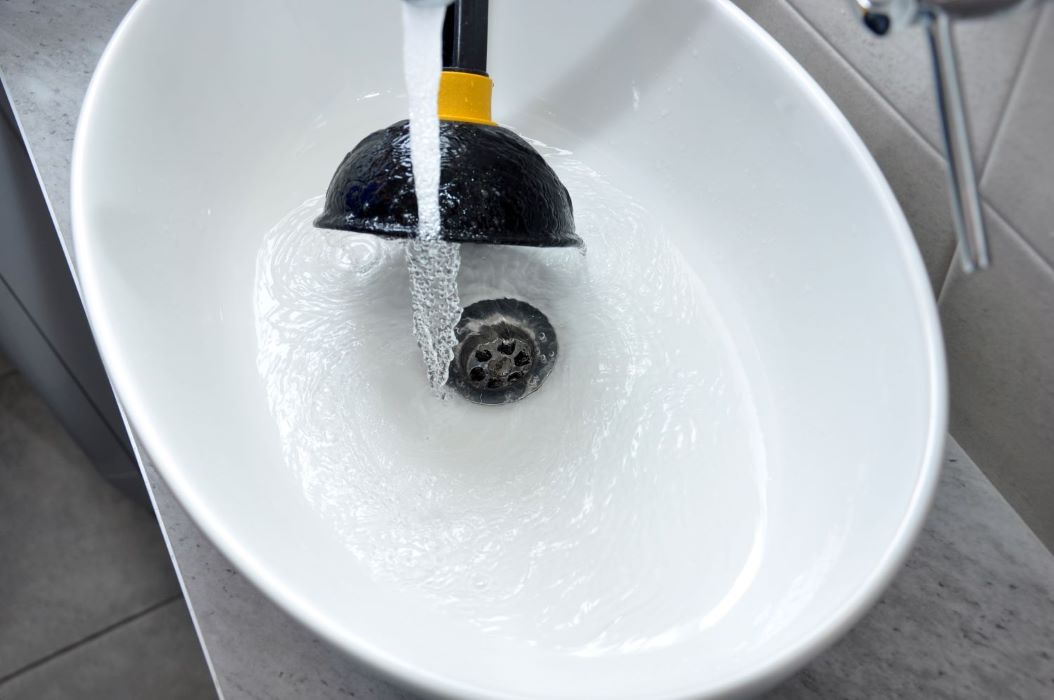

What can I do to prevent drain clogs?
Do not put grease down your sink - even in small amounts.
Cooking oil and grease are not good for your pipes. They tend to harden, adhere to other particles, and eventually create stubborn, dense blockages. Instead of allowing these substances to go down the drain, it's wise to adopt a better practice: store your grease in a glass jar or container and, when appropriate, dispose of it in your standard household trash.Take advantage of everyday, budget-friendly kitchen essentials like baking soda and vinegar.
Mix two cups of vinegar with one cup of baking soda to create a potent cleaning solution. Pour this impressive concoction down the drain and let it fizz for about 15 minutes. Conclude the process with a thorough flush of hot water, leaving your drain exceptionally fresh and impeccably clean. Utilize the odor-absorbing qualities of baking soda to effectively maintain a clean sink and drain. Simply sprinkle it into your kitchen drain regularly and follow up with a thorough rinse of hot water. Vinegar, a natural deodorizer and food residue fighter due to its acetic acid power, also performs an important role. Pour a cup of vinegar down the drain once a week and allow it to sit for 30 minutes prior to rinsing with hot water. This practice is a low-cost, plumber-approved way to keep your drain in good working order.Pick up a mesh drain strainer.
Choose a low-cost mesh drain strainer to efficiently trap food particles and other substances. Install it easily, and remember to empty it regularly to get rid of the debris that has accumulated.Avoid disposing of food scraps in your kitchen sink.
In order to prevent clogs and maintain a clear drain, exercise care in what you dispose of down the drain. A simple practice is to scrape any leftover food bits into the trash can before rinsing your dishes.Steer clear of harsh chemical products.
Opting for natural solutions in household cleaning is a prudent choice. Traditional cleaning chemicals not only jeopardize your health, but can also harm your pipes. The versatility and efficacy of ingredients like baking soda and vinegar for household cleaning might surprise you. There's a diverse selection of safe and effective cleaning alternatives that can replace the use of harsh chemical cleaners. While chemical drain cleaners may provide a temporary surface solution, what remains unseen is the highly acidic composition and the potential harm they can cause to your plumbing by way of corrosion. Repeated use of these abrasive cleaners can result in clogs due to the accumulation of corrosive deposits. If you're dealing with a persistent clog, don't hesitate to reach out to Mountain High Plumbing for our expert drain cleaning service.Learn about proper garbage disposal use.
When operating your garbage disposal, maintain a consistent flow of cold water. After switching off the disposal, continue running the water for an additional minute. This action eliminates any undesirable odors, guarantees that food remnants are effectively flushed through the pipes, and contributes to an efficient grinding process.
There's a widespread misunderstanding that garbage disposals and trash cans fulfill identical roles. Garbage disposal clogs can lead to expensive and messy complications. While garbage disposals offer convenience, it is essential to have a clear understanding of what you should and should not allow to enter them.
Do not put any of the following into your garbage disposal:
- Chemicals or paint Rice, pasta, and other starches
- Eggshells
- Any type of paper product
- Fibrous fruit or vegetable rinds or peels
- Meat or bones
- Coffee grounds
Give your kitchen drains a regular hot water rinse.
If your sink is prone to clogging, try pouring very hot water down the drain on a weekly basis to deter excessive buildup. Make it a habit to flush hot water down the drain after every use of your kitchen sink. This method aids in the removal of soap residue, small food scraps, and other contaminants, thus preventing clogs.
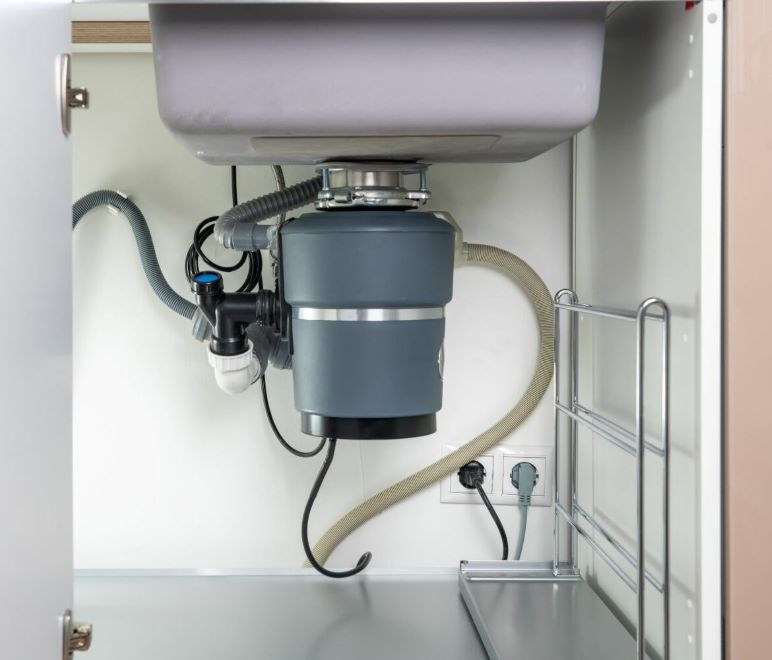
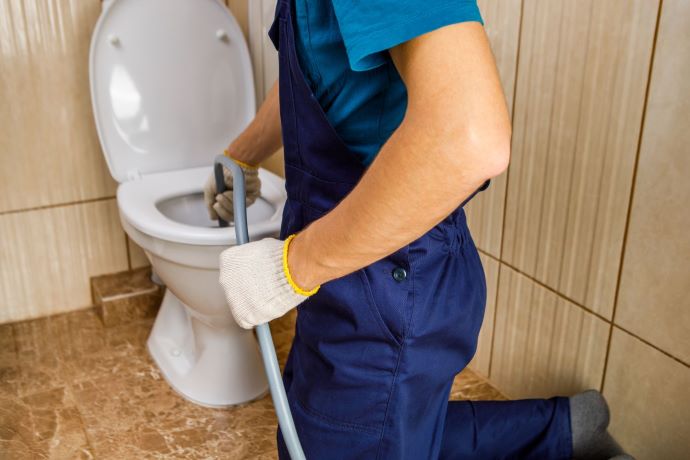
The Power of Hydro Jetting
Hydro jetting is a state-of-the-art technique for thoroughly cleaning a plumbing system using a unique high-pressure water hose. The process initiates with an initial inspection that employs advanced camera technology to identify any existing pipe damage that might impede our ability to use hydro jetting on your system. Once we've verified that your system is damage-free, we will commence the hydro jetting service. This involves the precise placement of the high-pressure hose, connecting it to a professional-grade water tank. The selection of the optimal insertion point for the hose is a crucial step in the process.We get to work with an astounding surge of water pressure, our sturdy hose, and the force of gravity all working as a team. This dynamic synergy moves water through the system at about 20 gallons per minute. Water rushes through backward-facing jets, propelling the nozzle through the pipes, while a forward-facing jet aids in debris removal. Hydro jetting is a thorough approach for removing grease, mineral buildup, tree roots, and other materials that could cause problems in the future. If you have a very difficult clog, your trusted drain cleaning contractor will most likely recommend this procedure for the best results.
Exploring Hydro Jetting Heads
Hydro jetting heads are diverse tools of the trade for our drain cleaning company, and each comes with its own set of advantages. Drain cleaning experts meticulously select these heads based on the specific characteristics of clogs and debris identified during inspections. Let's explore the various types of hydro jetting heads.
Penetrator Heads are an aggressive solution. These heads have two rear-facing jets and a powerful forward jet. The forward jet cuts through weaker obstacles, generating a space for water to cut through. The head drags the clog out with it when it withdraws. This technique effectively clears blockages in both directions.
The Leader is a versatile head designed for addressing challenging and intricate areas, including P-traps, corners, pipe bends, and vertical drops. Its flexible head adeptly maneuvers through these complex spaces while simultaneously guiding the line.
Grease Heads are purpose-built to address built-up grease. They feature a spinning nozzle that sprays water at a right angle to the head. Grease heads primarily focus on cleaning the inner walls of the pipe, and for comprehensive results, they work in conjunction with another cleaning head. However, the high water pressure effectively dislodges and scrubs away tenacious, adhered grease as it progresses through the pipe.
Warthog Heads are hydro jetting's powerful arsenal. These strong heads spin at high speeds, making them excellent for dislodging even the most tenacious blockages. However, it is important to note that their great force has the potential to damage pipes if not managed properly. You can trust that our plumbers will always prioritize the precise and safe use of every hydro jetting instrument.
Ice Heads are the solution of choice when plumbers are faced with icy blockages. These pointed heads use a forceful approach to break through ice dams by employing forward- and backward-facing jets, along with a sharp tip and hot water. As a result, ice removal and melting are more efficient.
